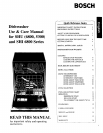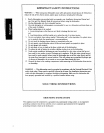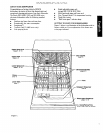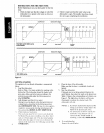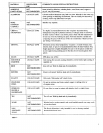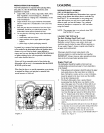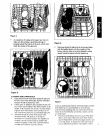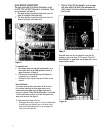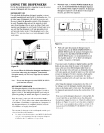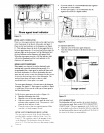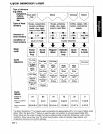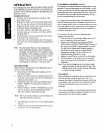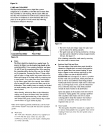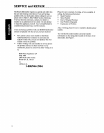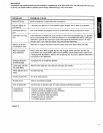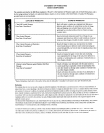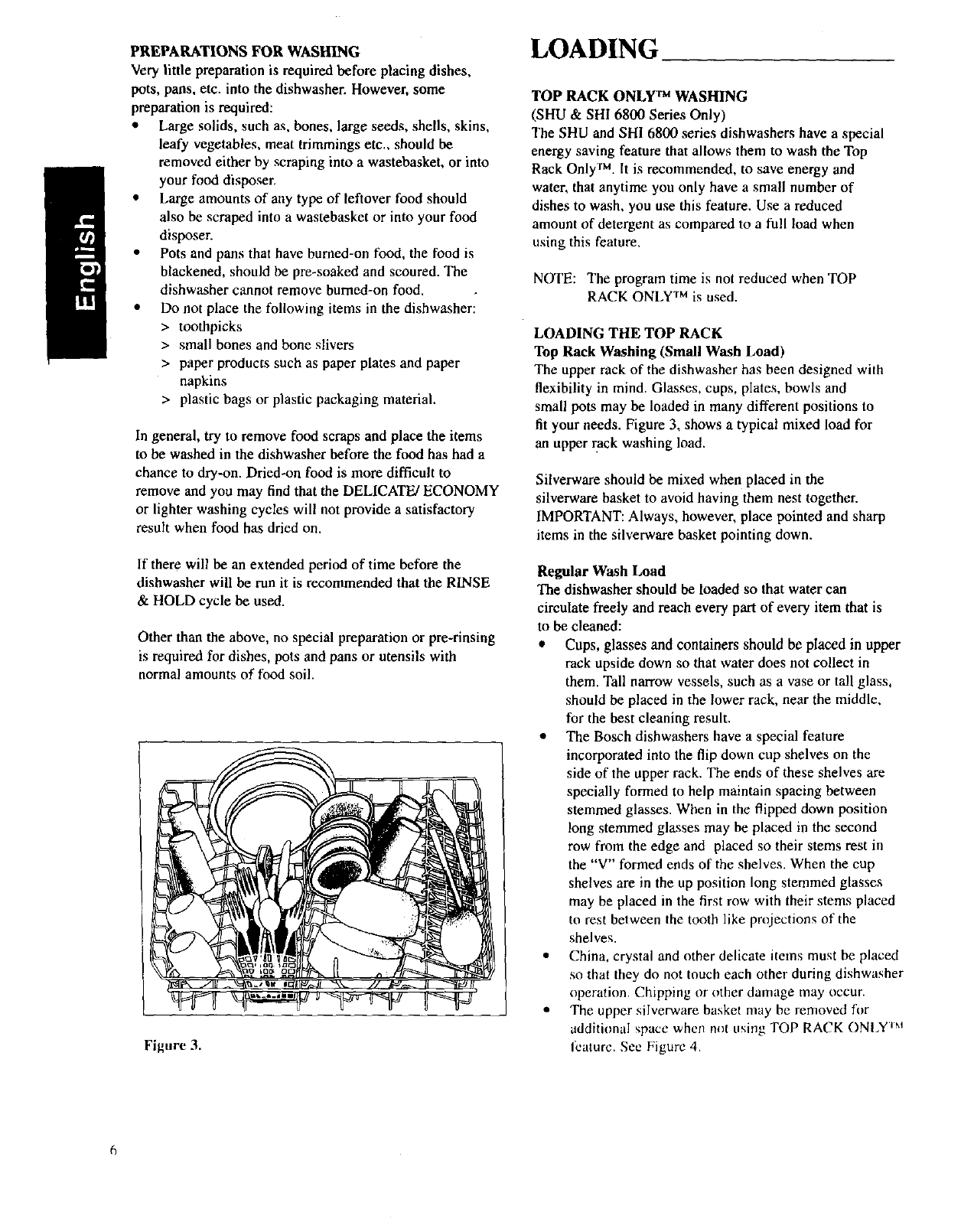
PREPARATIONS FOR WASHING
Very little preparation is requiredbefore placing dishes,
pots, pans, etc. into the dishwasher, However, some
preparation is required:
• Large solids, such as, bones, large seeds, shells, skins,
leafy vegetables, meat trimmings etc., should be
removed either by scraping into a wastebasket, or into
your food disposer.
• Large amounts of any type of leftover food should
also be scraped into a wastebasket or into your food
disposer.
• Pots and pans that have burned-on food, the food is
blackened, should be pre-soaked and scoured. The
dishwasher cannot remove burned-on food.
• Do not place the following items in the dishwasher:
> toothpicks
> small bones and bone slivers
> paper products such as paper plates and paper
napkins
> plastic bags or plastic packaging material.
In general, try to remove food scraps and place the items
to be washed in the dishwasher before the food has had a
chance to dry-on. Dried-on food is more difficult to
remove and you may find that the DELICATE/ECONOMY
or lighter washing cycles will not provide a satisfactory
result when food has dried on.
If there will be an extended period of time before the
dishwasher will be run it is recommended that the RINSE
& HOLD cycle be used.
Other than the above, no special preparation or pre-rinsing
is required for dishes, pots and pans or utensils with
normal amounts of food soil.
Figure 3.
LOADING
TOP RACK ONLY TM WASHING
(SHU & SHI 6800 Series Only)
The SHU and SH1 6800 series dishwashers have a special
energy saving feature that allows them to wash the Top
Rack OnlyTM. Itis recommended, to save energy and
water, that anytime you only have a small number of
dishes to wash, you use this feature. Use a reduced
amount of detergent as compared to a full load when
using this feature.
NOTE: The program time is not reduced when TOP
RACK ONLY TM is used.
LOADING THE TOP RACK
Top Rack Washing (Small Wash Load)
The upper rackof the dishwasher has been designed with
flexibility in mind. Glasses, cups, plates, bowls and
small pots may be loaded in many different positions to
fit your needs. Figure 3, shows a typical mixed load for
an upper rack washing load.
Silverware should be mixed when placed in the
silverware basket to avoid having them nest together.
IMPORTANT: Always, however, place pointed and sharp
items in the silverware basket pointing down.
Regular Wash Load
The dishwasher should be loaded so that water can
circulate freely and reachevery partof every item that is
to be cleaned:
• Cups, glasses and containers should be placed in upper
rackupside down so thatwater does not collect in
them. Tall narrow vessels, such as a vase or tall glass,
should be placed in the lower rack, near the middle,
for the best cleaning result.
• The Bosch dishwashers have a special feature
incorporated into the flip down cup shelves on the
side of the upper rack. The ends of these shelves are
specially formed to help maintain spacing between
stemmed glasses. When in the flipped down position
long stemmed glasses may be placed in the second
row from the edge and placed so their stems rest in
the "V" formed ends of the shelves. When the cup
shelves are in the up position long stemmed glasses
may be placed in the first row with their stems placed
to rest between the tooth like projections of the
shelves.
• China, crystal and other delicate items must be placed
so that they do not touch each other during dishwasher
operation. Chipping or other damage may occur.
• The upper silverware basket may be removed for
additional space whcn not using TOP RACK ONLYIM
Icaturc. Sec Figure 4.



